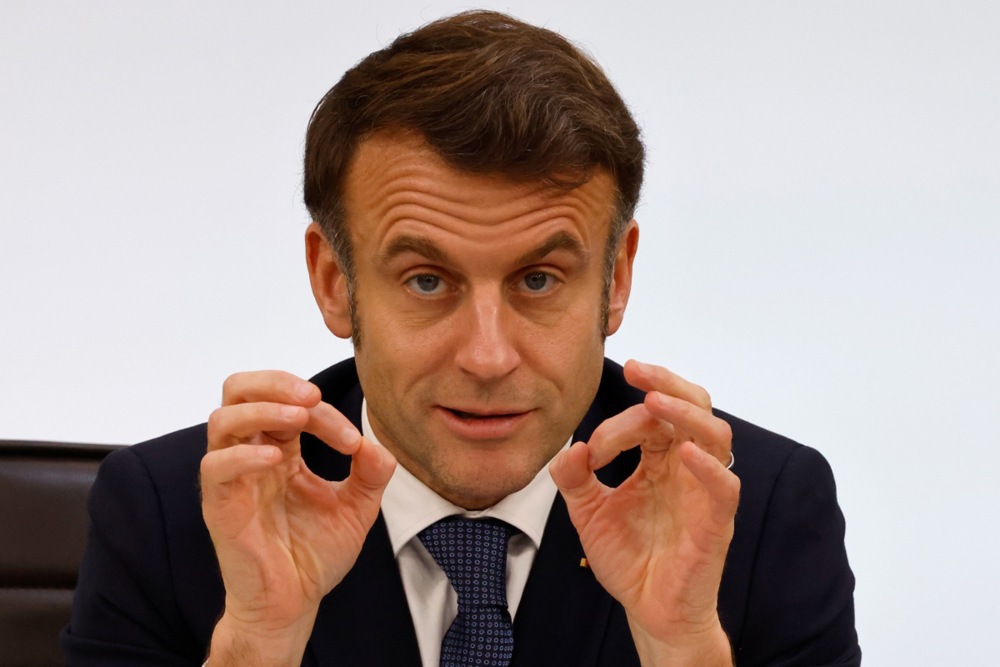In a highly critical report, the European Court of Auditors (ECS) has sharply condemned what it said was the European Union’s lack of oversight in spending €650 billion allocated for post-Covid recovery.
Published on May 6, it offered a long list of weaknesses and flaws regarding Brussels’ apparent lack of control over the mega fund.
The Recovery and Resilience Facility (RRF), the €650 billion post-Covid instrument designed to support reforms and investments across member states and launched in 2021, “suffers from several weaknesses in terms of performance, accountability and transparency”, according to the European financial watchdog.

“Although the RRF has played a crucial role in the EU’s post-pandemic recovery, information on results is scarce, and there is no information on actual costs,” the report stated.
“As a result, it is not clear what citizens actually get for their money.”
The auditors urged EU policymakers to learn from the RRF experience, particularly when considering future budgets that prioritised performance over costs.
The European Court of Auditors, the EU’s finance watchdog, has issued a warning about what it said was the growing risk of so-called double funding under the bloc’s Recovery and Resilience Facility. https://t.co/wkKzjuRHLP
— Brussels Signal (@brusselssignal) October 22, 2024
“EU policymakers must draw lessons from the RRF and not allow any future similar instrument without having information on actual costs, final recipients and a clear answer to the question of what the citizens actually get for their money,” said Ivana Maletić, one of the two ECA members behind the review.
“For future performance-based budgets, funding must be better linked to results and clearly defined rules, otherwise, such a system should not be used,” said Jorg Kristijan Petrovič, a co-author of the report.
The auditors raised several concerns about the RRF set against the backdrop of ongoing political debates over the EU’s long-term budget beyond 2027.
They argued the RRF was not truly a performance-based funding instrument. Instead, it placed more weight on implementation progress than on measurable outcomes.
Moreover, its spending efficiency and value for money could not be assessed, they said, as the European Commission did not collect data on actual costs and information on results remained limited.
The European Public Prosecutor’s Office has found numerous cases of alleged misuse of European Union Covid pandemic recovery funds – worth billions of euros. https://t.co/IV458GH6ga
— Brussels Signal (@brusselssignal) April 12, 2024
The auditors also stressed “the importance of designing and running future spending programmes in a way that is not detrimental to accountability”.
A significant issue is the EC’s reliance on member states to detect and correct serious irregularities and ensure compliance with EU and national rules, as these national systems had notable weaknesses,, the report said.
Additionally, the auditors said, the EC lacked the authority to impose financial corrections, such as recovering funds for individual breaches of procurement rules, except in cases of serious irregularities such as fraud.
That meant, they said, full payments could be made even when public procurement irregularities occurred provided that agreed milestones and targets had been met.
Furthermore, due to the structure of milestones and targets, some EU countries received substantial funds before completing their projects.
This arrangement posed a risk to the EU’s financial interests, as member states might retain the funds without fulfilling their project commitments, the auditors warned.
Although the implementation of the RRF was underway, it faced significant delays that have jeopardised the achievement of its objectives.
At the same time, disbursement of EU funds to national budgets has not meant that the money has reached its final recipients or the real wider economy.
The European Public Prosecutor’s Office has announced the arrest of 15 people suspected of defrauding more than €3.5 million from the so-called reparaturbonus (Repair Bonus) programme financed by the EU via the Recovery and Resilience Fund. https://t.co/qz1GLKbco1
— Brussels Signal (@brusselssignal) November 21, 2024
Another issue the auditors identified concerns the financing structure of the Recovery and Resilience Facility (RRF). While the European Commission successfully raised funds for the RRF through market borrowing—particularly during periods of historically low interest rates—the landscape has shifted significantly.
With interest rates rising, the cost of servicing this debt has escalated. Projections indicate that by 2026, financing costs could more than double the initial estimates.
Despite the European Commission’s proposal to introduce new own resources by early 2023 to manage the repayment of this debt, political consensus on these measures remains elusive.
This impasse, coupled with escalating borrowing costs, is exerting considerable strain on future EU budgets and introducing additional financial risks.
The financial performance statement notably excludes the borrowed amounts under NextGenerationEU (NGEU) from being classified as revenue. This omission negatively affects the EU’s economic results, contributing to a deficit in net assets as reflected in the EU balance sheet.
The repayment strategy for this substantial debt burden remains ambiguous at best, as EU member states continue to reject Brussels’ proposals for new own resources or EU taxes.
Despite all these problems, the EU is planning to use the same system of borrowing billions of euros to provide money for increased defence spending by its member states.
Poland’s centre-left government led by Prime Minister Donald Tusk has announced it wants to channel €7.2 billion worth of the European Union’s post-pandemic recovery funds into defence and security. https://t.co/qUwgUYIO4i
— Brussels Signal (@brusselssignal) March 27, 2025





